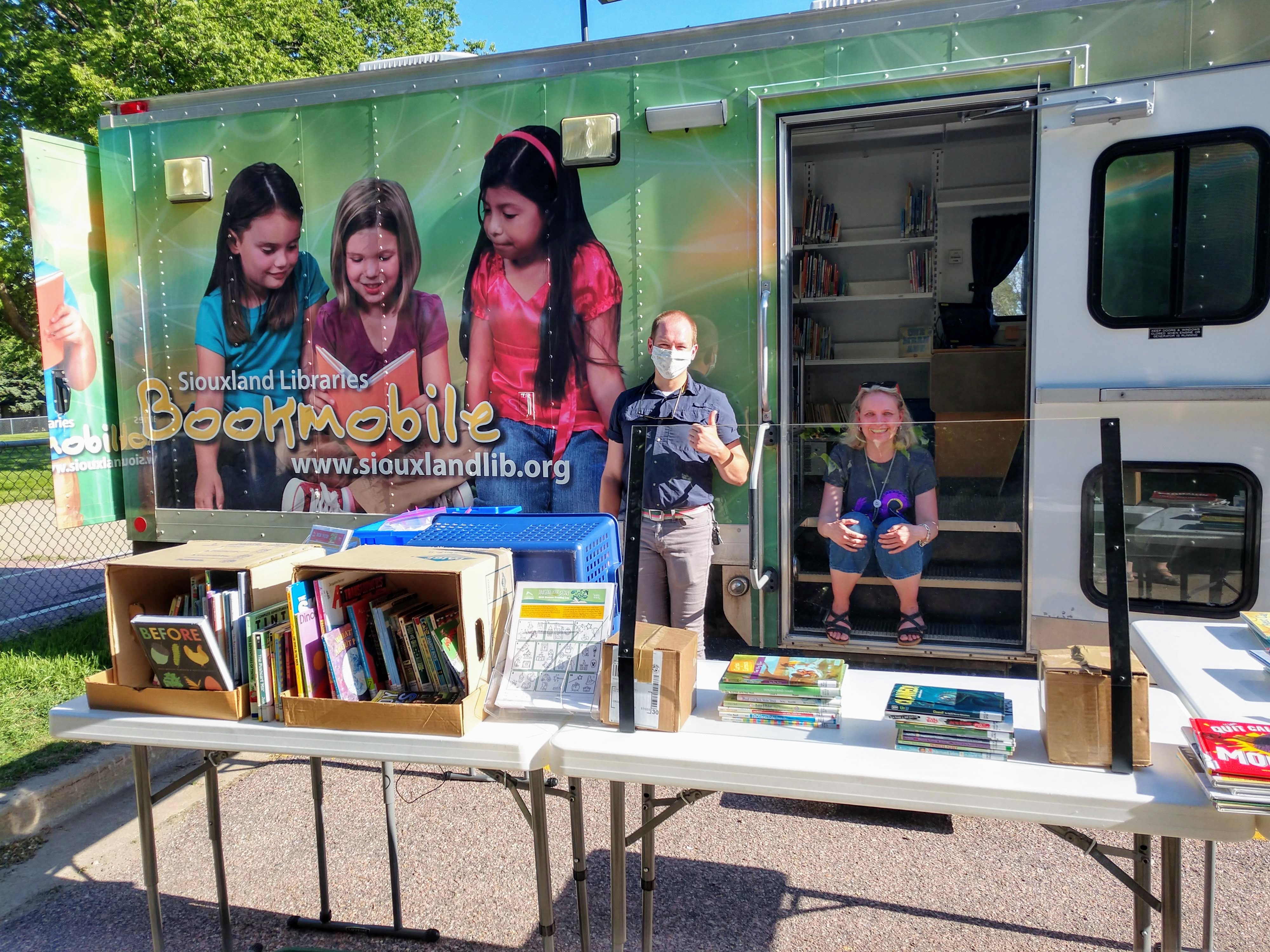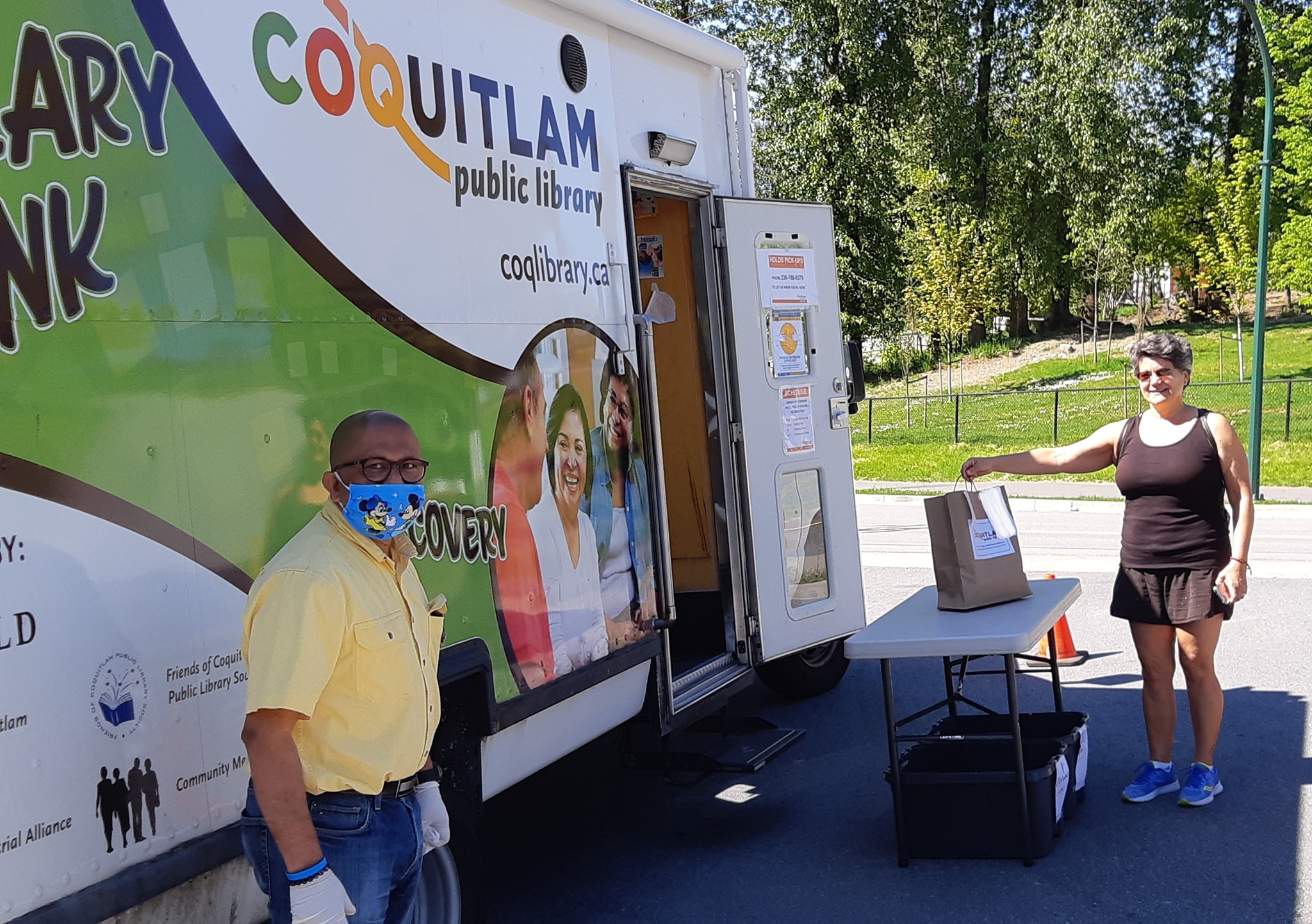Bookmobiles Navigate New Terrain
By their very nature, public libraries represent the opposite of social distancing. Bookmobile and outreach services, especially, exist to foster social connection by expanding access to library resources in communities where traditional library access is not a given. In a new era where the library’s foundational concept of bringing people together can have dangerous repercussions, libraries are confronted with a new challenge: how to continue connecting people and ideas while maintaining physical distance.
With unemployment and health crises disproportionately affecting our most vulnerable communities, free public library services are needed now more than ever, and bookmobiles are rising to this challenge in new and familiar ways. Coupled with the overall industry-wide expansion of access to electronic resources, mobile libraries are demonstrating what library staff already know to be true: that libraries are much more than can be contained in four walls.
In North Carolina, Alamance County Public Libraries’ Mobile Cafe, a Wi-Fi enabled van, provides wireless internet access across a mixed rural and urban region. While this service was developed long before the current crisis, it can serve as a model for libraries looking to diversify their mobile services at this time. With so many people currently working and studying from home, many libraries are considering ways to expand Wi-Fi access to help bridge the digital divide, and internet-enabled bookmobiles are a perfect tool to help accomplish this. Responding to community need, Alamance County has substantially expanded its mobile services. According to Mary Beth Adams, ACPL’s Outreach Coordinator, “Mobile Cafe originally provided internet access and free books to people who lived more than 10 miles from a branch library. Now we are serving sites where internet access is scant, not because of geography, but because of income.” The Mobile Cafe has added several apartment complexes to its route to aid students who live there because, as Adams points out, ”internet access is vital to distance learning.”
The close quarters of a traditional bookmobile make social distancing impossible, so most libraries are not allowing patrons to enter their vehicles to browse materials. Instead, they have found ways to either showcase their collections outside the vehicle or to transition to an entirely request-based system. North Berwick, Maine’s Tri-Town Bookmobile, a converted school bus which normally invites patrons onboard to browse its shelves, is currently offering curbside service and mobile hotspot access instead. Other workarounds include pre-checking out and bagging requested materials for contactless pickup or onboard staff performing on-the-spot readers advisory so that patrons can select from materials on hand without boarding the bus. As in many retail environments, some bookmobiles have erected plastic shields to separate patrons and staff during curbside and on-board service.

Many bookmobiles manage contactless returns by stationing a container outside of their vehicle to collect materials, which are then quarantined to reduce the risk of contamination. To avoid confusion, staff should provide patrons with an estimate for when returned materials will come off their online accounts, and should also clearly communicate how late fees will be impacted. Other service modifications include adjusting schedules to allow more time at each stop, which is necessary to accommodate the slower service inherent in physical distancing. Some bookmobiles have even begun offering home delivery of materials, which is a safe option for libraries with the bandwidth to provide this highly personalized service.
Some bookmobiles are modifying their routes or forgoing in-person visits entirely, instead utilizing other methods to continue providing remote services. New Mexico State Library’s Rural Bookmobile program has suspended in-person service for the time being, but is adapting their services to provide books by mail instead. Denver Public Library’s bookmobiles have suspended their regular services to older adult facilities and schools in favor of less risky distribution of books and donated materials to free lunch sites, housing locations, and recreation centers.

Other bookmobiles are expanding beyond traditional library services, making use of their mobility and staff to assist their communities in other ways. Livingston-Park County Library in Montana is using its bookmobile for home deliveries and, in partnership with local agencies, to deliver food and supplies to rural areas. In Arlington Heights, Illinois, staff on the AHPL bookmobile are stocking the area’s Little Free Libraries using books donated by their friends group. Keeping library staff and volunteers active in the community, even in nontraditional ways, can also be useful for disseminating real-time updates about what library services can be accessed while many locations are shut down. The serendipitous nature of most outreach interactions is a constant reminder that, while virtual resources are crucial, there will always be a need to disseminate library information by non-digital means.
In a time of widespread crisis and profound change, displaying versatility is a great way for libraries to show our communities that we’re still willing and ready to serve them. The inherent mobility and scheduling flexibility of a bookmobile lends itself to this purpose. The steps bookmobiles across the country are taking to continue providing services despite unprecedented hardships are proof positive that creative and resilient library staff can overcome almost any obstacle, even when “other duties as assigned” seems more a rule than an exception.









